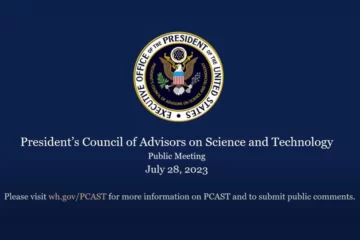First and foremost, the Patient Safety Movement Foundation would like to express its deepest condolences to the family and friends of Charlene Murphey, a patient at Vanderbilt University Medical Center who died after a medication error in December 2017. As a global non-profit committed to eliminating preventable patient harm and death across the globe by 2030, we believe even one loss is one too many.
Reaching zero harm will require healthcare systems and their staff to acknowledge faulty processes and embrace the reporting of near misses in order to create long-lasting change. However, on Friday, March 25, 2022, RaDonda Vaught, the nurse at Vanderbilt University Medical Center in Nashville, Tenn., was convicted of criminally negligent homicide and abuse of an impaired adult for the fatal medication error she made. From the outset of the incident, Vaught had told the truth and admitted the mistake. As an organization, we are saddened to see this case move to the criminal court system and believe criminalization of medical errors will rewind major gains the healthcare industry has made over the years in patient safety improvement.
Many medical errors are preventable, and this incident underscores a systemic problem rather than an employee issue. The underlying question should be how do we prevent this from happening again?
Shaming and punishing healthcare workers when an incident occurs sets a dangerous precedent for the industry. This will lead to a culture where healthcare workers avoid reporting near misses or errors for fear of repercussions, allowing process inefficiencies and systemic problems to occur.
The Department of Health and Human Services and Centers for Medicare and Medicaid Services has released their summary of the event. While the nurse has obligations to monitor a patient after administering a medication, it was clear in this instance that the root cause of this tragic incident was a “process error.” The medication dispensing machine should never have delivered medication for the patient that was not ordered by the clinician.
To achieve our goal of zero patient harm and death from preventable medical errors, we need to foster a culture where leadership of hospitals and healthcare organizations support healthcare workers and encourage them to share near misses. Healthcare workers are human and healthcare systems need to ensure there are appropriate processes in place to provide their staff with a safe and reliable working environment so they can provide their patients with the best care. Only by identifying potential problems and learning from them can change occur. Some healthcare systems have taken this one step further to celebrate near misses and to recognize the healthcare workers who have stepped forward to admit mistakes and be part of finding solutions to correct processes.
The Patient Safety Movement Foundation is committed to helping healthcare organizations make the change needed to eliminate preventable medical errors, this includes:
- Creating high reliability organizations: To truly minimize preventable harm, the healthcare industry would benefit from becoming a highly reliable industry, such as aviation or nuclear power, which anticipates problems before they occur and are transparent about errors and root causes when they do happen. This requires a significant commitment by the executive team and governing body. A journey to high reliability will not succeed without their buy-in, continuous reinforcement and modeling of behavior. High reliability organizations need to create awareness about patient safety at every touch point across the organization, train leaders and staff in improvement processes, as well as commit to and model transparent, open and honest communication.
- Supporting the CANDOR method: The Communication and Optimal Resolution (CANDOR) toolkit is a well-studied Communication and Resolution Program (CRP) used by many healthcare organizations and practitioners to improve patient safety through an empathetic, fair and just approach to medical errors. This approach focuses on putting patients, families and caregivers first and providing timely, thorough and just resolutions after adverse events occur. Through this process, healthcare organizations and their patients can feel confident that processes will be examined in real-time and clear communication will occur throughout an unexpected event. Successful execution of the CANDOR process can lead to improved patient outcomes and satisfaction and the support of staff involved in the incident.
The Patient Safety Movement Foundation stands with many other organizations condemning the approach of criminalizing medical error including, the Institute for Healthcare Improvement, American Nursing Association, Academy of Medical-Surgical Nurses, American Association for Respiratory Care and American Hospital Association.
Those interested in learning more about available resources can connect with the Patient Safety Movement Foundation, which exists to support healthcare organizations as they work towards zero preventable medical errors, as well as patients, families and caregivers impacted by medical error. Together, we can save lives.
Respectfully,
Michael Ramsay, MD, CEO of the Patient Safety Movement Foundation





